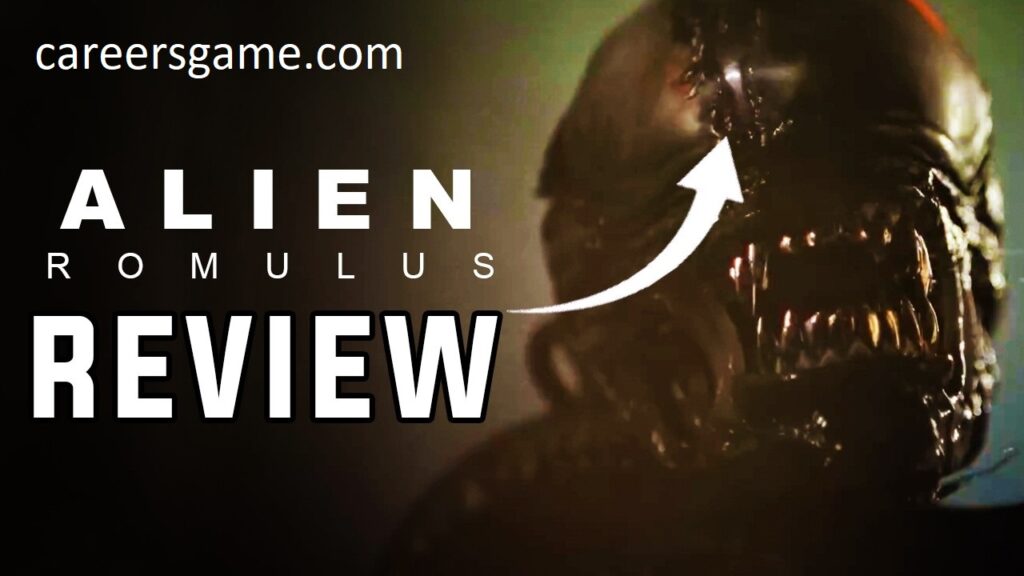The Alien franchise has long been a beacon of sci-fi horror, known for its terrifying creatures, intense atmosphere, and psychological tension. From Ridley Scott’s pioneering 1979 film to James Cameron’s action-packed Aliens (1986), the series has continuously pushed boundaries in both its genre and storytelling. However, over the years, the Alien series has seen various attempts to redefine or reboot its core narrative, with mixed results. Alien: Romulus is one such attempt, marking a new direction in the universe while maintaining the dark, suspenseful qualities that made the franchise iconic. But does it manage to deliver on the legacy of its predecessors, or does it fall short of expectations? In this review, we explore Alien: Romulus’ unique approach, its strengths and weaknesses, and its place in the broader Alien universe.
A Fresh Take on the Alien Formula
One of the most striking aspects of alien romulus review is its decision to step away from the well-established characters and settings familiar to fans of the franchise. Rather than revisiting the Weyland-Yutani corporation or focusing on established protagonists like Ellen Ripley, Alien: Romulus introduces a completely new cast and setting. The film takes place on the remote planet Romulus, where a group of survivors, largely made up of military personnel, crash-land after their ship is damaged. Stranded and isolated, they quickly discover they are not alone – the planet is home to a deadly Xenomorph species.
This shift in focus is a daring move for the franchise. While many fans of Alien expect the series to follow certain formulaic structures – space, a group of survivors, and the eventual appearance of Xenomorphs – Romulus aims to keep the familiar elements while carving out a distinct path. The choice to introduce new characters allows the film to break free from the weight of its legacy, giving it room to explore new ideas. Unfortunately, while this decision offers a sense of novelty, it also leaves some fans feeling disconnected, as the established world-building and lore are not as central to the film’s plot.
The Human Element: A Struggling Cast of Characters
At the heart of Alien: Romulus is its group of survivors, whose interactions and personal struggles form the emotional core of the story. The film places a strong emphasis on character development, with each individual bringing their own backstory and motivations. While this approach is well-intentioned, the result is somewhat uneven. Some of the characters are engaging and well-developed, their inner conflicts and fears making them relatable to the audience. Yet others feel underdeveloped, serving more as plot devices than as fully fleshed-out people.
The film’s central protagonist, a young soldier who leads the group, struggles with guilt over a past mistake and his responsibility to protect the crew. His internal struggle provides some depth to the narrative, offering moments of emotional intensity and vulnerability. However, while his story arc is compelling at times, it often feels overshadowed by the overwhelming focus on survival and the impending threat of the Xenomorphs. This imbalance between character drama and action sequences sometimes detracts from the overall emotional impact, leaving the audience with a sense of detachment.
Moreover, some of the supporting characters, while essential to the plot, lack the complexity needed to make their deaths or sacrifices feel significant. In Alien films, the loss of characters is often pivotal to the tension, but in Romulus, some deaths fail to resonate with the same weight. This leaves the film feeling more like a survival horror story than a psychological exploration of its characters, something the series is known for.
The Xenomorphs: A Return to Horror
In terms of creature design and the horror elements of the film, Alien: Romulus does not disappoint. The Xenomorphs, while not as heavily featured as in previous installments, are as terrifying as ever, with their sleek, insect-like forms and deadly agility. The film embraces the horror genre fully, building up tension through claustrophobic settings, unexpected attacks, and the constant fear of the unknown.
What Romulus does well is ramp up the sense of isolation. The survivors are stuck on a strange, hostile planet with no immediate means of escape, and their only hope of survival is to avoid the Xenomorphs that hunt them. The film uses this isolation to its advantage, making every corner of the planet feel like a potential deathtrap. The production design also plays a crucial role in maintaining the sense of dread, with dimly lit corridors, alien landscapes, and rundown, makeshift shelters adding to the tension.
Despite the strong return of the Xenomorphs as a terrifying force, there are moments in the film when the horror feels more predictable than in previous Alien films. The familiar beats of the Xenomorph attack sequences – lurking shadows, sudden bursts of violence, and narrow escapes – are all present, but the film sometimes falls into repetitive patterns. While these scenes are still thrilling, they lack the same sense of surprise and originality that earlier films in the franchise delivered.
Visuals and Direction
Visually, Alien: Romulus is a mixed bag. The film excels in creating a bleak, ominous atmosphere, using stunning landscapes and intricate set designs to evoke a sense of unease. The alien planet itself, Romulus, feels both hostile and mysterious, with its dark forests and barren, rocky plains serving as a fitting backdrop for the battle between the survivors and the monsters. The film’s cinematography plays with light and shadow, contributing to the film’s tense mood and often making the Xenomorphs feel even more intimidating.
However, the film also suffers from occasional pacing issues and uneven action sequences. While there are some well-executed set pieces, others feel rushed or underwhelming. The lack of clear direction at times hinders the overall impact of the story, leaving some action scenes feeling more mechanical than thrilling.
Conclusion
Alien: Romulus is a film that treads familiar ground while attempting to carve its own path within the Alien franchise. While the shift to a new setting and a fresh set of characters brings a sense of novelty, the film struggles to balance its character-driven moments with the sheer intensity of survival horror. The Xenomorphs remain a terrifying presence, but their role in the story feels slightly diluted compared to earlier films. Additionally, while the visuals and atmosphere are commendable, the film occasionally falters in pacing and action.
Ultimately, Alien: Romulus offers a worthwhile exploration of the Alien universe, but it doesn’t quite live up to the legacy of the franchise’s best entries. It introduces fresh ideas but doesn’t always execute them to their full potential. For long-time fans of the series, the film will be an enjoyable, if flawed, addition. For others, it may feel like another chapter in a familiar story that lacks the shock and awe of its predecessors. Regardless, it’s clear that the Alien franchise still has plenty of life left, and Romulus leaves room for future exploration of its dark, monstrous universe.



